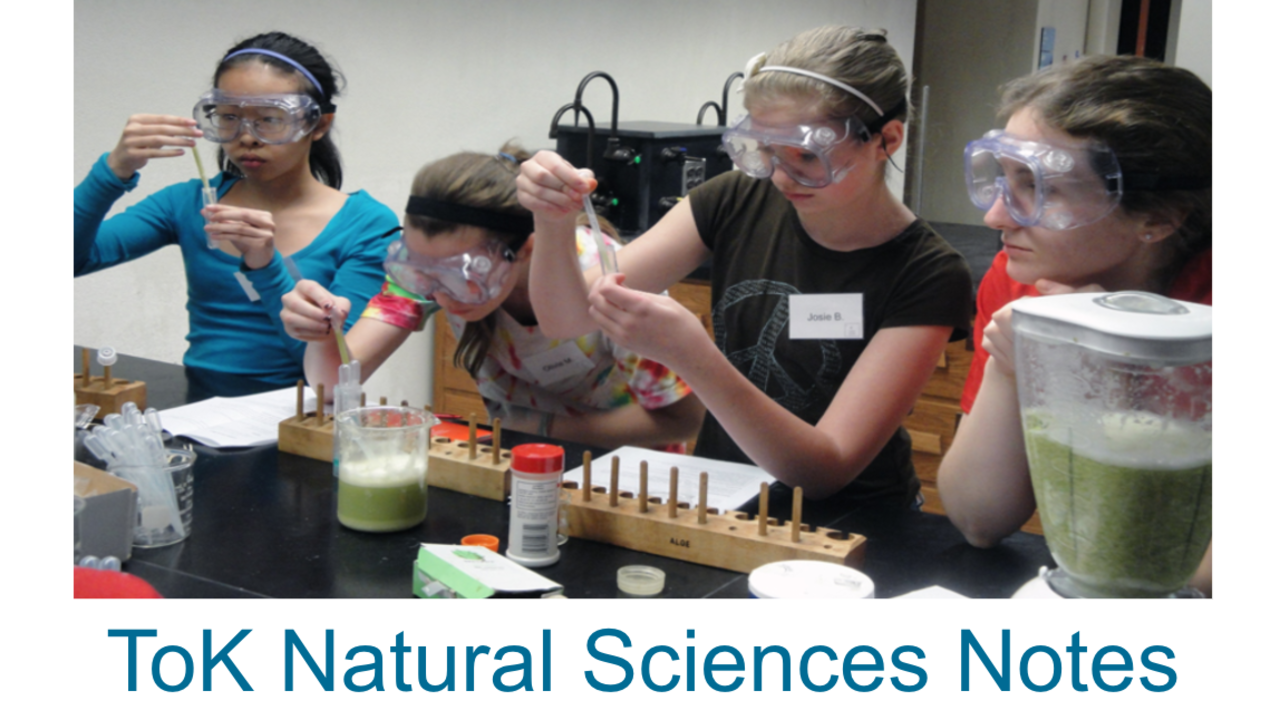Natural Science Notes - Theory of Knowledge

I know you'll find these TOK Natural Sciences notes helpful, but there is an even better version available to our supporting members here (the full Natural Sciences notes) --along with some very helpful TOK videos and other sources for your TOK essay and exhibition. Click here to try IBMastery for free.
Natural Science Quotes
- "It ha
 s been said that man is a rational animal. All my life I have been searching for evidence which could support this." (Bertrand Russell)
s been said that man is a rational animal. All my life I have been searching for evidence which could support this." (Bertrand Russell) - "I do not feel obliged to believe that the same God who has endowed us with sense, reason, and intellect has intended us to forgo their use." (Galileo Galilei)
- "He that will not reason is a bigot; he that cannot reason is a fool; and he that dares not reason is a slave." (William Drummond)
- “As a matter of historical fact, the history of science is, by and large, a history of progress.” (Karl Popper)
- "Critical reason is the only alternative to violence so far discovered." (Karl Popper)
- "Reason itself is a matter of faith. It is an act of faith to assert that our thoughts have any relation to reality at all." (G K Chesterton)
- "You do not reason a man out of something he was not reasoned into." (Jonathan Swift)
Definitions of Natural Science
- A science or knowledge of objects or processes observable in nature, as biology or physics, as distinguished from the abstract or theoretical sciences, as mathematics or philosophy. (Dictionary.com)
- Any of the sciences (as physics, chemistry, or biology) that deal with matter, energy, and their interrelations and transformations or with objectively measurable phenomena. (Merriam-Webster Dictionary)
Insights from Natural Science
The insights of science allow u s to understand the processes of our world. People applying the methods of science have given us insights into things, from the more abstract (pure science) areas, such as the theory of relativity, big bang theory or evolution, to more practical areas (applied science) such as the research which have brought us antibiotics, electricity and all of our advanced technologies.
s to understand the processes of our world. People applying the methods of science have given us insights into things, from the more abstract (pure science) areas, such as the theory of relativity, big bang theory or evolution, to more practical areas (applied science) such as the research which have brought us antibiotics, electricity and all of our advanced technologies.
- Often insights which seem very abstract and unsuited to practical application end up having dramatic practical uses. For example, when the structure of DNA was first discovered, genetic engineering wasn't considered a practical possibility. Today, genetically modified crops have already reduced chemical pesticide use by 37% and increased crop yields by 22% (Klümper, W).
- The essence of the power of science is its predictive power. Science allows us to make predictions about what will and won't work in terms of technologies.
- Science is great at overcoming personal biases or wrong beliefs. Scientists aren't able to test every potentially wrong belief, but in the areas where scientific testing is possible (i.e. natural processes) the scientific method does a great job at uncovering false beliefs.
- Specific instances of scientific insight can be generalized, using inductive reasoning, to derive general principles of how the world works.
- Scientists are expected to record and share both their results and their methodologies. This means that new findings are shared widely and mistakes can be caught.
Okay, that's all for the TOK Natural Sciences notes preview. Click here to become a subscriber and you'll get the full, premium Natural Sciences notes right away. (Subscribers click here for the full TOK Natural Sciences notes.)










